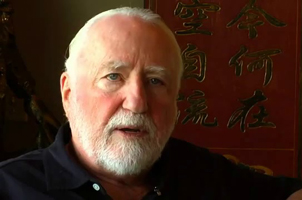You might be surprised to learn that the Detroit Red Wings reached the Stanley Cup Final four times during the six year period 1960-61 to 1965-66. During that period, the Toronto Maple Leafs reached the Final three times, the Montreal Canadiens were there twice, and so were the Chicago Black Hawks. The New York Rangers made the playoffs once during that period. The Boston Bruins did not participate in the postseason once during that six year period.
In 1960-61, the Wings bounced the Leafs to reach the Final. Detroit bounced the Hawks the other three times they participated in the Final. Chicago eliminated the Wings in 1960-61. Detroit lost to Toronto in 1962-63 and 1963-64. Montreal hoisted the Cup in 1965-66.
Terry Sawchuk returned to the Wings after the 1956-57 season. He was good upon his return - but not nearly as good as he had been before the trade to Boston. Lost time to injury was also a problem - especially in the playoffs.
Gordie Howe had 15 points in 11 playoff points in 1960-61. He had 16 points in 11 playoff games in 1962-63, and Norm Ullman also had 16 points in 11 postseason games. In 1963-64, Howe had 19 points in 14 playoff games, and Ullman had 17 points in those 14 games. Ullman was the Wings' offensive star in 1965-66, with 15 points in 12 playoff games. Howe had 10 points. In his only shot at hoisting the Cup, Dean Prentice - who was attained from the Bruins during the 1965-66 season - had 4 goals and 4 assists in the first round against the Hawks, ensuring that he would get a shot at the Cup. Andy Bathgate - acquired from Toronto after the 1964-65 season - led Detroit with five goals against Chicago, all on the power-play. Against the Canadiens, Ullman led the Wings with 4 goals and 6 points.
In 1960-61, the Wings bounced the Leafs to reach the Final. Detroit bounced the Hawks the other three times they participated in the Final. Chicago eliminated the Wings in 1960-61. Detroit lost to Toronto in 1962-63 and 1963-64. Montreal hoisted the Cup in 1965-66.
Terry Sawchuk returned to the Wings after the 1956-57 season. He was good upon his return - but not nearly as good as he had been before the trade to Boston. Lost time to injury was also a problem - especially in the playoffs.
Gordie Howe had 15 points in 11 playoff points in 1960-61. He had 16 points in 11 playoff games in 1962-63, and Norm Ullman also had 16 points in 11 postseason games. In 1963-64, Howe had 19 points in 14 playoff games, and Ullman had 17 points in those 14 games. Ullman was the Wings' offensive star in 1965-66, with 15 points in 12 playoff games. Howe had 10 points. In his only shot at hoisting the Cup, Dean Prentice - who was attained from the Bruins during the 1965-66 season - had 4 goals and 4 assists in the first round against the Hawks, ensuring that he would get a shot at the Cup. Andy Bathgate - acquired from Toronto after the 1964-65 season - led Detroit with five goals against Chicago, all on the power-play. Against the Canadiens, Ullman led the Wings with 4 goals and 6 points.

